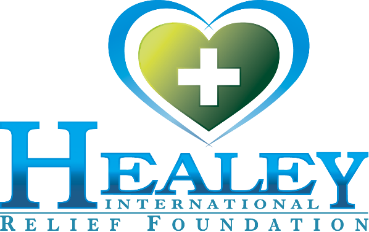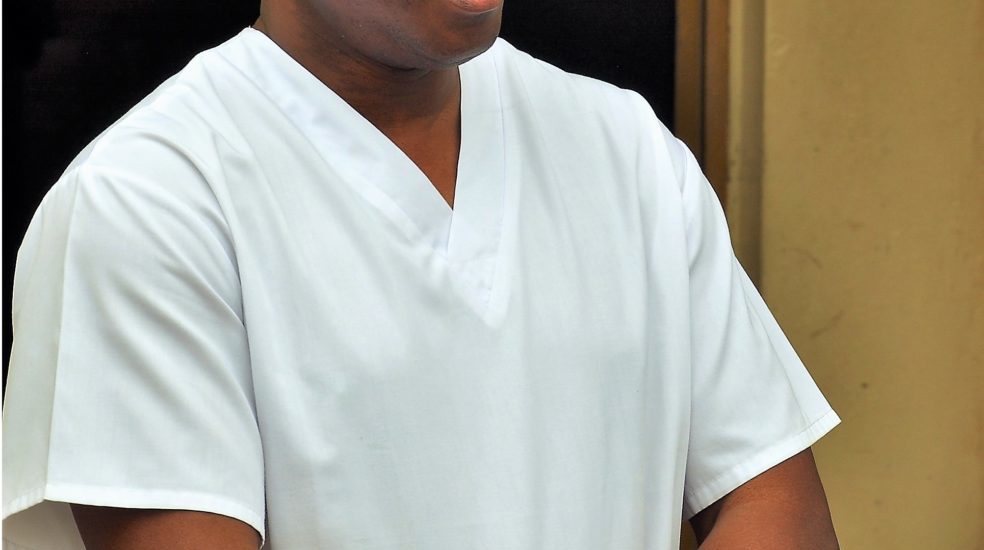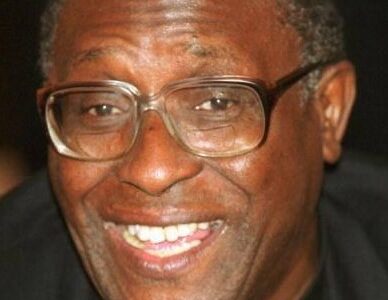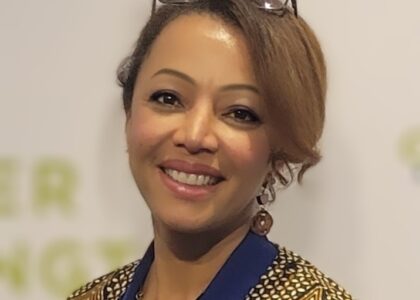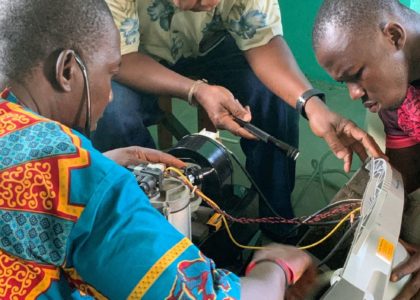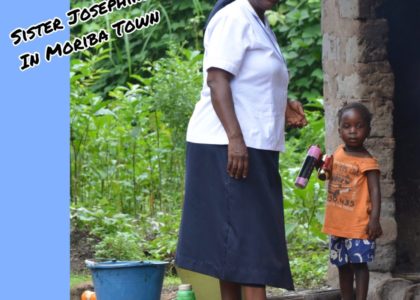40-50 patients per day, 6-7 days a week, with the occasional break for administrative work. As Medical Director of Holy Spirit Hospital in Makeni, Dr. Patrick Turay is the heart and soul of the facility, conducting daily rounds and patient consultations throughout his busy day. As part of HealeyIRF’s Charity Health Network, Holy Spirit Hospital has had a long-standing relationship with the community, opening its doors after in the country’s civil war in 2002 as a one room clinic. In November 2016, fire erupted at Holy Spirit Hospital, destroying the Molecular Biology & Immunology Laboratory, Physiotherapy Unit, and Drug Store. The loss of the Molecular Biology & Immunology Lab posed a great setback to the hard work conveyed by Dr. Turay and his team to strengthen the health system following the Ebola epidemic. In the wake of the fire, Dr. Turay has been advocating for his hospital, hoping to replace some of the equipment lost. With support from generous donations, HealeyIRF was able to provide the hospital with a Reflotron Anazlyzer, used to detect liver, bone and kidney diseases, as well as tests for diabetes and cholesterol. This piece of equipment was the first on Dr. Turay’s list of immediate needs, which indicated that approximately $200,000 was needed to replace equipment. Dr. Turay still works diligently to acquire equipment lost but remains hopeful for the hospital.

During a short break from his demanding position in Sierra Leone, Dr. Turay traveled to the United States to visit friends and family. Subsequently he continued to fulfill his duties by networking and searching for donors for analyzers and other medical supplies. HealeyIRF Executive Director, Benjamin Parra, had the chance to catch up with the Doctor in Washington D.C. and ask him a few questions regarding his role and the Sierra Leone healthcare system.
How did you become interested in the field of health care?
“Unfortunately, my younger brother, whom I loved dearly, suffered from sickle cell anemia and was always sick. Seeing my brother this way motivated me to seek a career in health care, in hopes that I could better understand his disease and help him. I graduated from medical school with the support of the Catholic Church, specializing in Tropical Medicine and International Health. I also had the opportunity to study in Russia, the United States, and the United Kingdom. Even though my brother passed away before I completed my studies, I continued to stay motivated and finish my education to honor his memory.”
How did your training and education prepare you for your position in Sierra Leone?
“My studies in Tropical Medicine provided me the discipline to work in any environment. My work in New Orleans and London provided me the training to work in vulnerable settings where there are poor resources to work with and limited access to medical instruments and medicines. We also learned how to attend those in illiterate, poor populations that come to us with preventable diseases only when it is too late to be cured. I am often working with poor patients in Sierra Leone that lack basic health information and knowledge.”
What was the environment like in Sierra Leone during the Ebola outbreak?
“Coincidently, when Ebola was initially detected in Guinea, I was studying for a Masters program in Tropical Medicine and International Health at the London School of Hygiene and Tropical Medicine. One of my lecturers was Dr. Peter Piot, a pivotal researcher in Ebola and HIV, documented as an initial discoverer of Ebola in 1976. During one of our conversations, he mentioned that Ebola was headed in our direction, and within days, the first cases of Ebola were detected. I immediately returned to Holy Spirit Hospital to implement Infection Prevention Controls (IPC) at the facility. Among the measures taken were closure transported all outpatient and personnel from one controlled location to minimize the need to use public transportation, arranged lodging at the hospital for selected personnel, limited the access of visitors and vendors, monitored all employee’s vital signs twice daily, and established a triage at the hospitals. As a health worker, life during Ebola was stressful. We were nervous for ourselves and our colleagues since many health workers throughout Sierra Leone were catching the disease. We were also pained to be living such secluded lives, sending our families away as a precaution. Holy Spirit also participated with the Center for Disease Control (CDC) in the development of clinical trials for the Ebola vaccine. We have learned from this outbreak that early detection is the key to control with all haemorrhagic fevers.”

Dr. Turay is returning to Holy Spirit Catholic Hospital with high hopes that his travels will make a significant difference. Upon talking to Dr. Turay, we became privy to the hardships for a non-government run hospital in Sierra Leone. While patients often prefer private hospitals because they offer quick turnaround time and a more personable experience, most of the hospital’s revenue is dependent on patient fees and based on each family’s ability to pay. HealeyIRF is one of the few small donors, dedicated to continuing support to Holy Spirit Catholic Hospital and improve operations.
